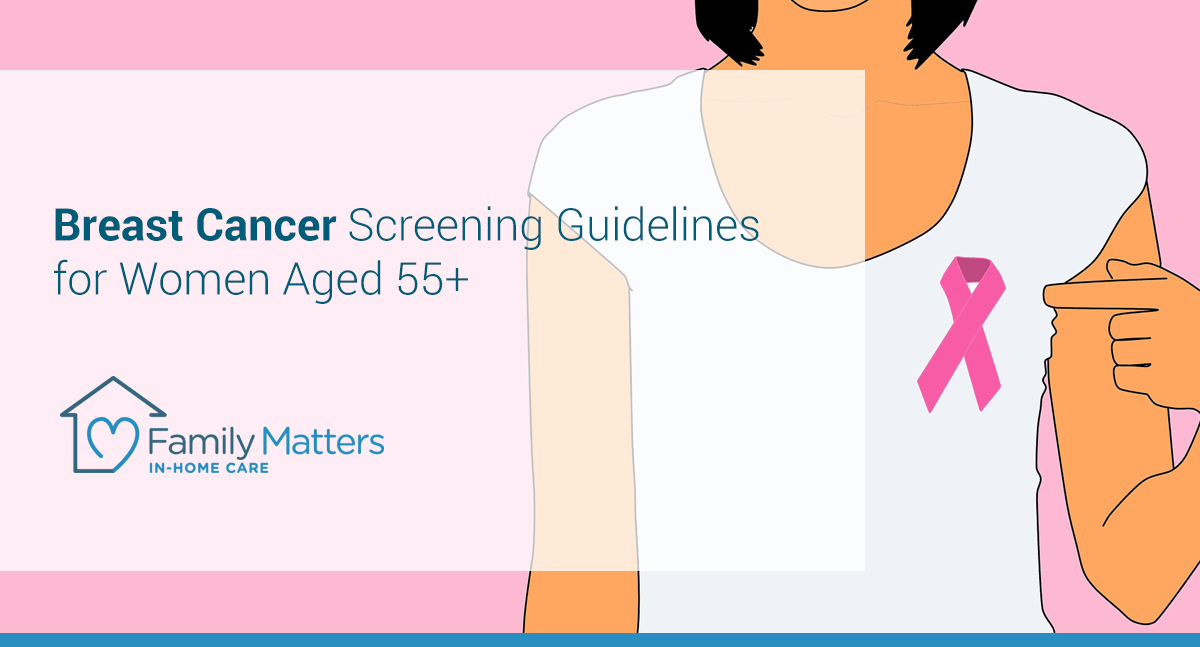
Breast Cancer Screening Guidelines for Women Aged 55+
October is breast cancer awareness month. Television, consumer products, magazines and even the National Football League (NFL) will go pink to raise awareness of the importance of breast screenings for the detection and early treatment of cancer. That’s the good news. The bad news is that for women aged 55 and older, the recommendations for breast screenings can be very confusing. The experts themselves don’t agree on the details. However, the bottom line is that screenings can detect cancer in its earliest stages when treatment is most effective. Here is what you need to know.
According to the National Cancer Institute, the risk that a woman will be diagnosed with breast cancer during any given decade of her life is as follows:
- Age 30: 0.44 percent (or 1 in 227)
- Age 40: 1.47 percent (or 1 in 68)
- Age 50: 2.38 percent (or 1 in 42)
- Age 60: 3.56 percent (or 1 in 28)
- Age 70: 3.82 percent (or 1 in 26)
Because of this risk, it is best to have regular mammograms. Whether they are conducted annually or biannually is a decision that each woman should make with her doctor. The fact of the matter is that mammograms are the most effective screening to detect breast cancer so that treatment can be administered.
There are several expert sources for information on breast cancer screenings. They include the American Cancer Society, Susan G. Komen and the U.S. Preventive Services Task Force. Here are their recommendations:
- Women 55 and older should switch to mammograms every 2 years, or can continue yearly screening.
- Screening should continue as long as a woman is in good health and is expected to live 10 more years or longer.
Susan G. Komen quotes information from the U.S. Preventive Services Task Force that says that women aged 50 to 69 should have mammograms every two years. When the Task Force announced these recommendations in 2009 it threw the medical community into an uproar. The standard was mammograms every year. However, the Task Force reviewed scientific evidence and data from women across the country. It concluded that mammograms conducted every two years resulted in nearly as many benefits as mammograms conducted every year, while reducing the risks of false positive results, over-diagnosis and over-treatment. The U.S. Preventive Services Task Force found:
- Women aged 50 to 59 who got mammograms on a regular basis had a 14 percent lower risk of dying from breast cancer than their peers who did not get mammograms.
- Women aged 60 to 69 who got mammograms on a regular basis had a 33 percent lower risk of dying from breast cancer than their peers who did not get mammograms.
The other confusing recommendation is when to begin having mammograms. The standard age to begin used to be 40 but now some organizations, like the American Cancer Society, recommend beginning at age 45. It’s best to talk to your physician. Family history, race and ethnicity can impact the age at which a woman should begin regular mammograms.
Despite the controversy caused by conflicting recommendations, women should have regular mammograms because they save lives. That is the most important thing to know.
If you or your family member is considering in-home care as part of a plan to age in place, contact Family Matters In-Home Care today for a free consultation. Our team is dedicated to supporting your family and helping older adults enjoy life in the comfort of their own home for as long as possible.
Some of the services offered by Family Matter In-Home Care include: Alzheimer’s & Dementia Care, Bed & Wheelchair Transfer Assistance, Companionship, Housekeeping & Meal Preparation, Personal Care, Recovery Care, and Transportation.
